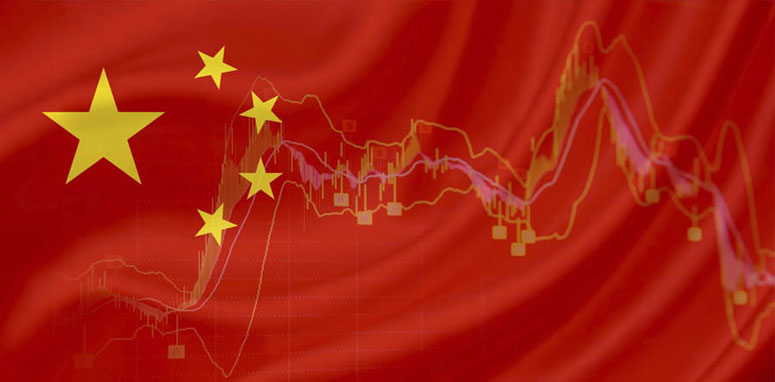China isn’t going anywhere!
Since 1993, my logistics company has specialized in shipments to and from China and over that time, I have seen plenty of changes in the China market and I have learned that when it comes to China you need to focus on the long run.
The stock market crisis in China is getting headlines, but it will not prevent China from having a prosperous future.
Stock Market Implosion
Everybody knows that China’s stock market is crashing. In the short run, the Chinese stock market meltdown will have major implications for China, Asia and the rest of the world.
China’s stocks were (are) very overvalued and there will probably be further losses. The China economic bloodbath is huge. To put it in perspective, the GDP of Greece is $237 billion and China’s stock market lost $3.25 trillion in value between June 12 and July 12. If the Greek economic crisis is a beer, the Chinese economic crisis is a week-long bender.
The crisis will cause some short term suffering and some painful adjustments. Those of us in the United States know the feeling – big losses followed by a slow recovery.
China will recover and while the short term blips get the headlines, we need to focus on the trends that will define the future of China.
Trend 1 — Political and Economic Reform
The recent stock market crisis is only the latest hiccup to highlight that the socialist market economy model is a difficult blend to manage.
Since China opened for business in 1978, China’s political leaders have done a masterful job of transitioning China from a poor inward-looking country into an economic and exporting powerhouse. As China takes its’ place as a world leader, its political leaders will need to continue the reforms, but the job has become trickier due to the recent stock market crisis.
The new freedoms and wealth that China’s reforms have yielded also makes it harder govern the Chinese people. While the reforms will be difficult, given China’s track record, I think they will continue to find the right balance.
Trend 2 — Largest Economy in the World.
Depending on the projection you believe, China will have the world’s largest economy sometime in the next 15-30 years. While the economists argue about GDP projections, business people just need to know that China has a huge economy and in the long run it will be even bigger.
Regardless of stock market activity, China will continue to develop high quality, inexpensive goods for export. Additionally, selling to China’s 1.3 billion people is a pretty good business too. Companies like GM, Nike, Wal-Mart and Apple are doing very well selling products to the massive Chinese consumer market.
Trend 3 — Moving on Up — Cheap Labor to High Tech Innovation
China grew their economy by being a low cost manufacturer. The low cost country strategy worked like a charm. However, the low cost country strategy will not necessarily help China in the future.
China’s companies are moving up the food chain to add more value and earn higher margins.
China’s labor rates have increased over time, which means China needs to find a new strategy that is not reliant on lowest cost.
China is graduating 6 million college graduates every year so they will have the educated workforce required to make the transition to high value added products and services. China is also interested in producing their own consumer brands that will enable them to continue being a big exporter.
Trend 4 — Cleaning up & Going Green
China’s pollution problem has moved to the forefront of the country’s consciousness. In China’s drive to become an economic power, environmental concerns took a back seat. Those problems have come home to roost.
Policymakers are making cleaning up and going green a priority even if it reduces GDP growth.
China’s has a smog problem and the country has imposed rules that will help wean them off coal which is one of the main causes of air pollution in China. Even though China is limiting coal usage, it still represents two thirds of their energy mix.
China’s leaders have set aggressive goals for the environmental clean up and safeguards. While the environmental projects will slow down production from certain polluting industries, it does provide an opportunity for companies looking to export green technologies to China.
Trend 5 — Industry consolidation
One of the causes of the current stock market crisis is the Chinese monetary policy that made money very easy to borrow. While it works, easy money is great. The easy money means there is cheap money available for low interest loans. The lower interest loans lead to increased investments in both existing businesses and startups. Predictably the economy gets a boost from easy money.
The low interest loans often leads investors into riskier investments. When the easy money dries up, the weak players are exposed. The weaker and smaller players once starved of easy money will falter opening the way to industry consolidations. The consolidation will be more prevalent in capital intensive industries like industrial and automotive.
Overall, industry consolidation will be helpful to outsiders doing business with China because the companies left after consolidation will be stronger business partners.
Trend 6 — Next Generation Chinese
As the Chinese economy has transformed so has the people of China. The Chinese people are wealthier, better educated and increasingly connected to the outside world.
As always the younger generation will have their own impact on the country and the economy.
Chinese people in their 30’s and 40’s probably don’t remember China before the government opened up trade with the rest of the world.
Many people in their 20’s and 30’s grew up in “six pocket” families meaning they were the only child in the house (only child) and so were their parents due to China’s one child rule. These six pocket children grew up with their parents and both sets of grandparents focused on their needs and development. As a result, many people in the younger generation received great educations, lots of adult guidance and abundant development opportunities.
Given their upbringing, I believe the next generation is going to expect more from life including consumer goods, travel, entertainment and access to the rest of the world. I also expect that they will seek more meaningful experiences including charity work and social entrepreneurship.
As China continues to grow economically, there will be more consumers available to buy goods and services imported from the United States.
These trends and not stock market bubbles will define China’s future.

